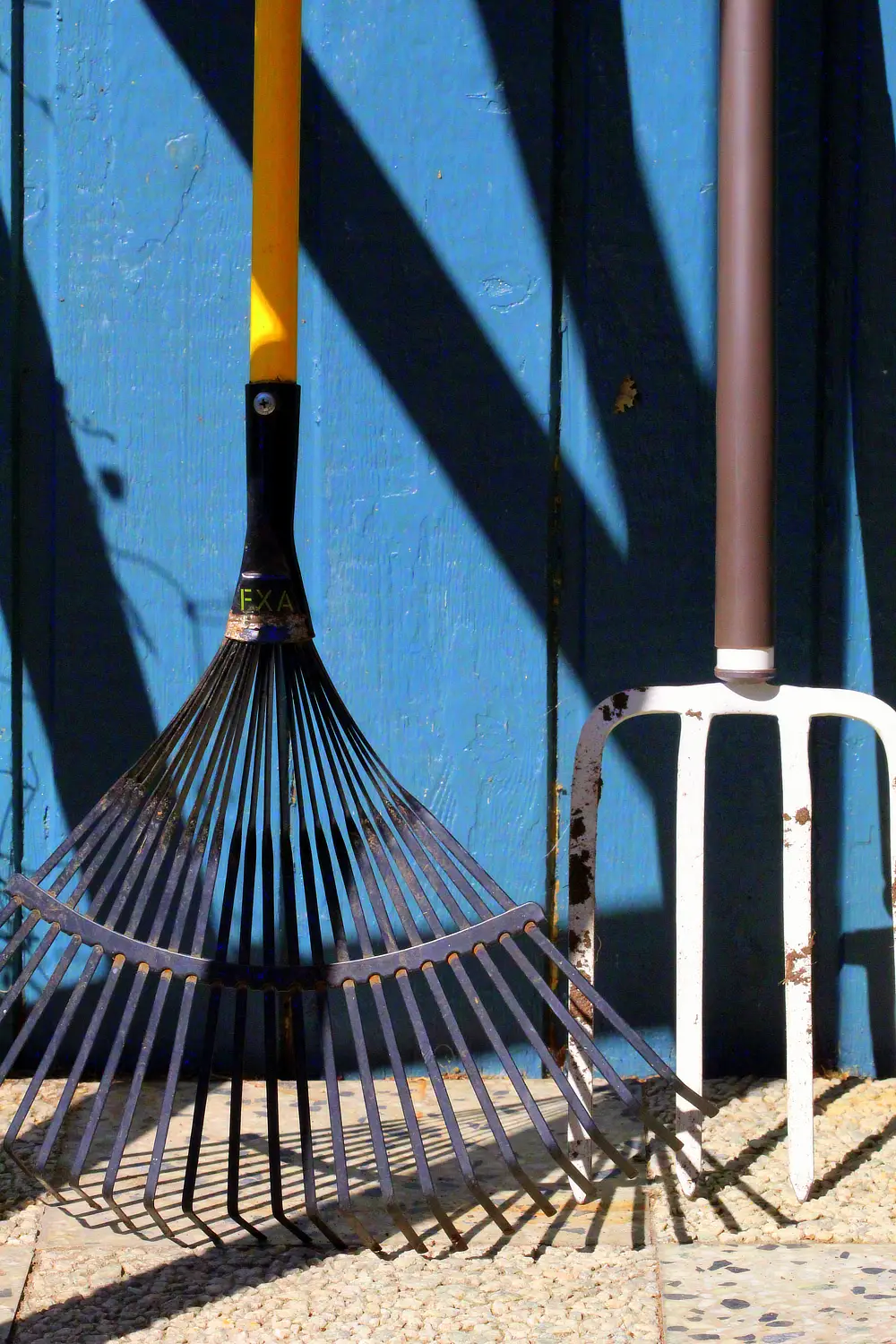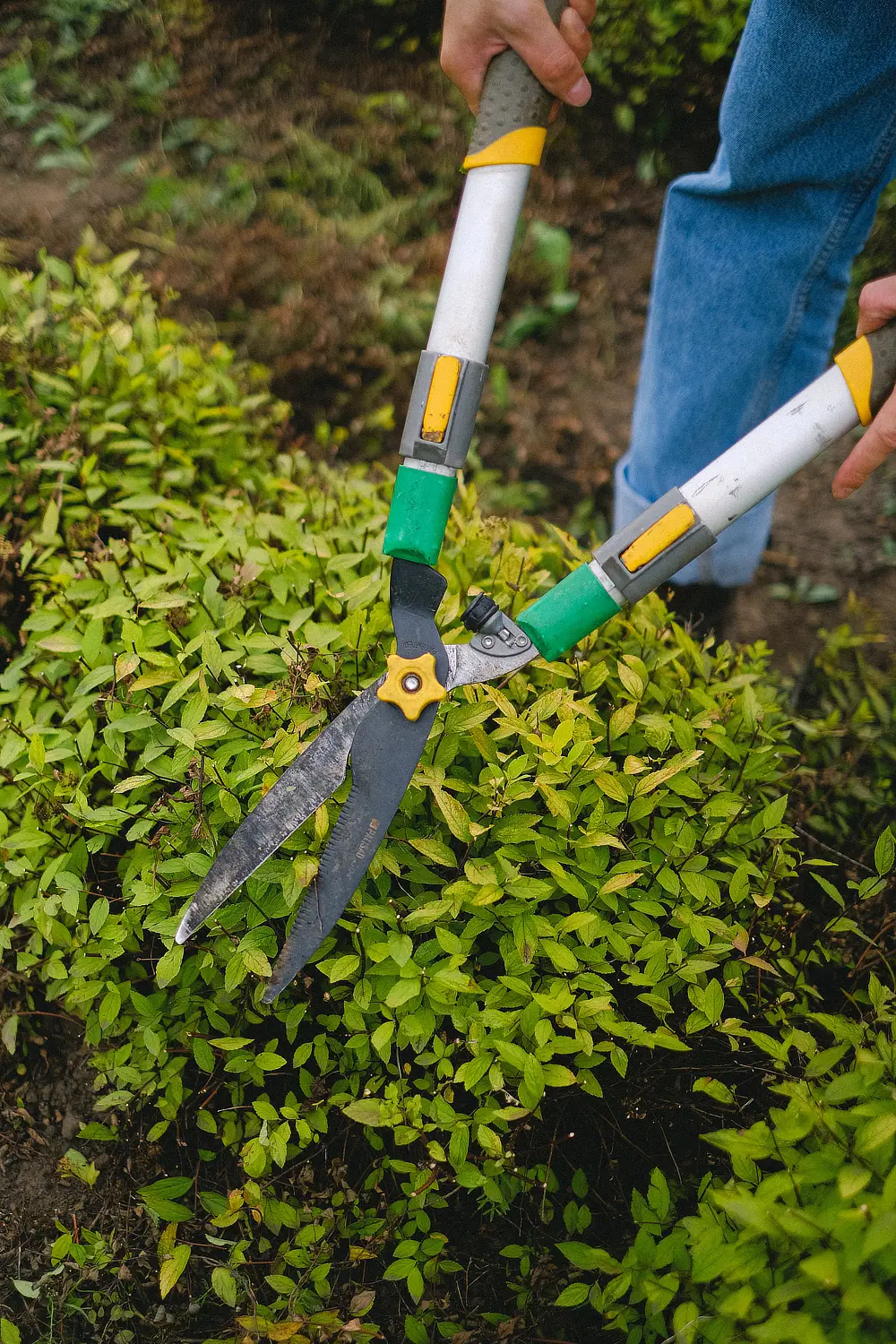One walk down the tool isle of the hardware store can leave you overwhelmed thinking you don’t have a big enough shed for all the tools you need for a successful garden but don’t stress you only need a handful of good quality tools for a great garden.
The number one tool you need is a pair of Secateurs and get the best quality you can afford as they will do all the hard work pruning, deadheading, chopping up and shaping your garden. Ensure you get the right size for your hand as the wrong size will make your hands hurt after a day out in the yard. The trick to safeguarding your secateurs so they last a lifetime is to make sure you only prune branches under the thickness of your finger – any bigger and you will warp the mechanism and ruin them. I always sharpen mine before and after use to make sure the cut is as clean as possible and wipe them down with disinfectant after a day in the garden to prevent the spread of disease.
If you are pruning anything thicker than a finger you will need a pair of loppers, but these are generally used for garden clear outs rather than ongoing maintenance, so you don’t need them straightaway. If you do get a pair just think of them as larger secateurs so treat them the same. When looking for a pair of loppers look at the blades those that have two blades that by-pass each other are for pruning plants that are alive, those that have one blade that comes done on an anvil ( a block of metal) are for cutting up dead plants and should not be used on living plants as they can damage the plant by mangling the ends of the plant increasing the surface area that pests and diseases can attack.
Pruning shears would be next on the list and these are for shaping your topiary and hedges. I prefer short-handled shears as the telescopic versions tend to be heavier and once you’ve pruned one hedge; you’ll understand why lightweight is best. Treat these with the same care as you would a pair of secateurs and only cut foliage and fine soft wood to prevent them from misshaping. When using these dip them regularly in a bucket of water as wet blades will reduce any snatching of foliage and lead to a cleaner cut. Dry them off at the end of the day and apply a lubricant to protect the metal and stop it from rusting before storing.
A good digging shovel is next on the list get one with a rounded head as its more versatile and pick a size that feels comfortable to you. Longer handled shovels have more leverage so are better for digging in and out of plants, mixing in compost and filling wheelbarrows. Shorter handles give a little more control when cutting through things such as roots and are great for mixing things like sand and cement in a wheel barrow.
Most gardens need a lawn mower and the new battery-operated ones have more than enough power for the average garden. You can get rotary mowers that have a blade that spins underneath in a circle or a cylinder mower that cuts with a turning blade against a block, both work well but the cylinder mower will give a cleaner cut and it better for pristine lawns that get regular mowing. Irrelevant of what mower you use try to mow at least once a week and change the direction of your mowing pattern for the healthiest grass on the street. You can use an old set of pruning shears to cut your edges or invest in a whipper snipper to speed the whole process up.
The final item on my must have tool list would be a compost bin – the perfect place to recycle all of your green waste and create a product that will lift your garden to the next level. Good gardens come from good soil and home-made compost is the best way to improve your soil’s structure, water and nutrient holding capacity as well as increase the micro-organism numbers. When composting make sure you add 50% dead or brown material such as shredded paper or cardboard to your garden waste to prevent it from going smelly and attracting flies.


